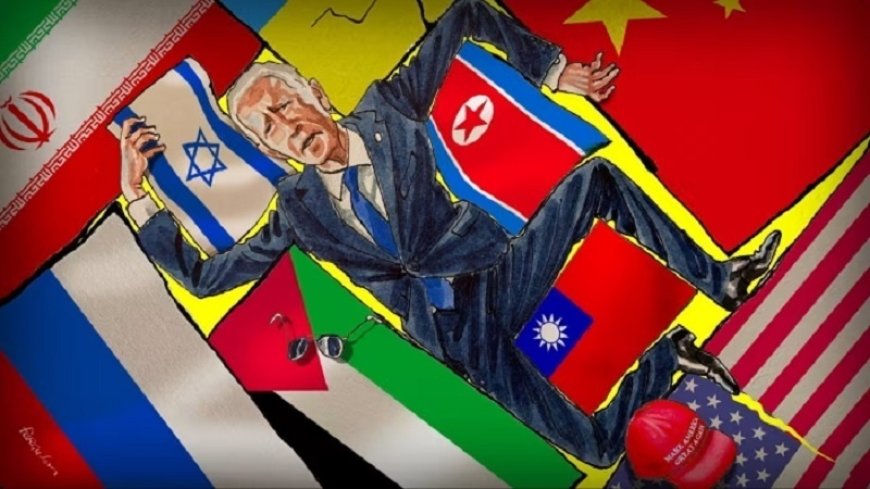Shifting Dynamics: The Emergence of the Eastern Alliance and Its Implications
In a detailed examination of the evolving geopolitical landscape, the American magazine Foreign Affairs has shed light on the burgeoning alliance among Russia, China, Iran, and North Korea. Dubbed the "Eastern Alliance," this coalition represents a strategic shift aimed at curtailing the United States' influence globally and redefining the parameters of international relations.

In a detailed examination of the evolving geopolitical landscape, the American magazine Foreign Affairs has shed light on the burgeoning alliance among Russia, China, Iran, and North Korea. Dubbed the "Eastern Alliance," this coalition represents a strategic shift aimed at curtailing the United States' influence globally and redefining the parameters of international relations.
According to the magazine, all four countries view the United States as the principal barrier to expanding their respective spheres of influence. The alliance's primary objective is to establish a new international system, one that deviates significantly from the current American-led order. This ambition is rooted in a collective desire among these nations to diminish Washington's presence in their regional affairs.
Foreign Affairs highlights the lack of a coherent plan for an alternative global framework among the alliance members. However, their unified opposition to the foundational principles of the existing American order provides a robust basis for collaborative efforts. This shared stance facilitates strategic cooperation across various domains, notably in defense and economic spheres.
The publication draws attention to the deepening defense ties between Russia and Iran, describing them as an "unprecedented defense partnership." This collaboration has significantly enhanced their joint military capabilities through the exchange of advanced aircraft, drones, air defense systems, and cyber capabilities. Such military strengthening is positioned as a counterbalance to potential U.S. or Israeli interventions.
Furthermore, the Eastern Alliance is actively working to reduce its dependence on the U.S. dollar, aiming to diminish the impact of Western sanctions. By shifting their economic transactions away from the dollar, these nations seek to insulate themselves from U.S. financial influence and foster economic autonomy.
The inclusion of Iran in the Shanghai Cooperation Organization (SCO) and BRICS further illustrates this strategic pivot. By integrating Iran into these significant multilateral groups, China and Russia are not only bolstering Iran's international standing but also promoting a multipolar world order. This move is seen as a direct challenge to the West's historical dominance and a step towards balancing global relations more favorably for Eastern powers.
As these nations continue to forge ties and build this nascent alliance, the implications for global stability and U.S. foreign policy are profound. The emergence of the Eastern Alliance could lead to a significant reorganization of global power structures, heralding a new era of multipolarity that could redefine international diplomacy and economic relations in the decades to come. This strategic realignment represents not only a challenge to the West but also an invitation for Western powers to reconsider their approaches to international engagement and diplomacy in a rapidly changing world.













































